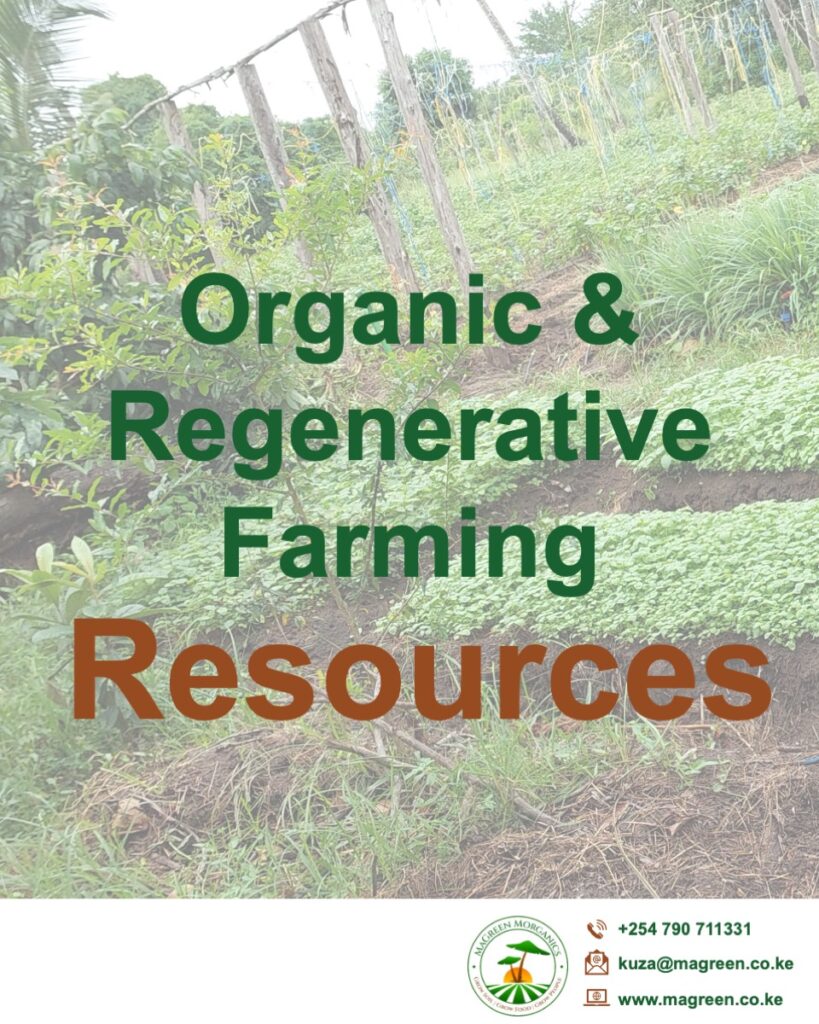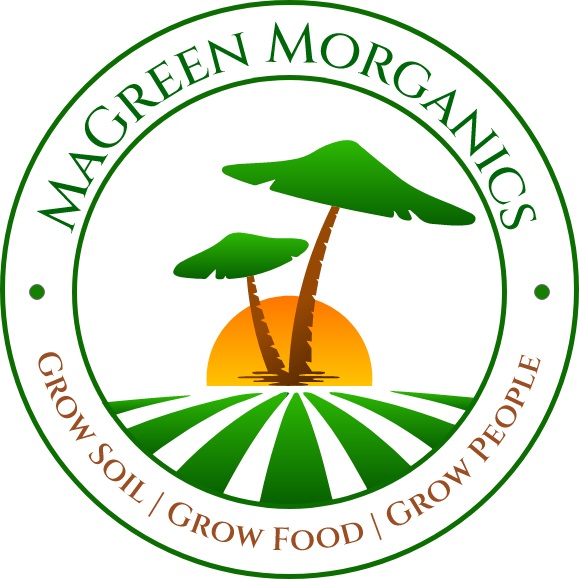
Sometimes we can feel we are alone as natural, organic and regenerative farmers, but this is never the case. There are always others who share our principles and values of growing food that is great for humans, and also good for the environment. It helps a lot to learn from them, and for them to learn from us. This is the value of community.
While the Internet has vast resources in this area that we take advantage of, it also helps to know of resources that are developed for a given geography or context. The challenges we face in Kenya are likely different from the challenges experienced in other regions of the world. Context matters.
At MaGreen Morganics, we draw and learn a lot from the following resources (in no particular order):
- InfoNet Biovision: Provides scientific and practical validated information and knowledge related to plant (crop), animal, human and environmental health. The resource gives farmers, trainers, students, and extension workers quick access to up-to-date and locally relevant agricultural information and related topics. They also publish The Organic Farmer (TOF) and Mkulima Mbunifu magazines.
- Kenya Organic Agricultural Network (KOAN): A national membership organization for organic agriculture in Kenya. KOAN was formed to coordinate, facilitate and provide leadership and professional services to all members and other stakeholders in the organic agriculture industry in Kenya.
- Root To Food Initiative (RTFI): Advances the right to adequate, sufficient, and healthy food and champions agroecology as a transformative solution—sustainable farming that incorporates ecological principles, minimizes harmful synthetic inputs, and fosters biodiversity. RTFI also publishes Cha Kula magazine, and have a great introductory course on agroecology.
- Knowledge Hub for Organic Agriculture and Agroecology in Eastern Africa (KHEA): Main goal of the KHEA Hub is to integrate Ecological Organic Agriculture (EOA) into the participating countries’ agricultural systems by generating, capturing, and sharing information know-how and integrating these into agricultural practices and decision-making for improved livelihood.
- Feedback To The Future: Is dedicated to promoting resilient and equitable communities in Kenya and East Africa by adopting regenerative and circular economy practices. Their primary objective is to enhance the health and well-being of both people and the planet by increasing access to diverse nutritious organic foods, sustainable energy, waste management systems, natural building materials, and ecosystem restoration.
- Participatory Ecological Land Use Management (PELUM) Association: Promotes agroecological principles and practices through the following approaches; advocacy and policy influence, networking, capacity development, information and knowledge sharing.
What other resources would you recommend for a Kenyan or East African farmer?
